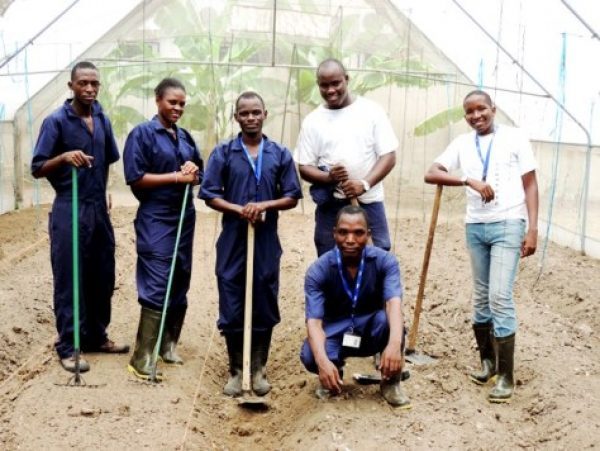
Members of the Tanzania Youth Agripreneurs pose for a group photo as they prepare to plant vegetables in their greenhouse
The agriculture sector – which employs just under 1 million people in South Africa according to StatsSA – is crying out for a solution to its youth employability challenge.
This was one of the key takeaways from the Youth Employment Service (YES) participation at the recent CGA Citrus Summit held in Port Elizabeth.
“Lack of viable and sustainable youth employability solutions was a clear issue for all stakeholders,” says Lara Grieve, YES business development manager.
Grieve added: “What was clear from the event was that the agriculture sector is looking for ways to bring a more collaborative approach to the unemployment challenge, bringing government and the commercial players in the agriculture sector together.”
Borne out of the CEO Initiative, YES has become one of the highest impact programs in SA, creating on average nearly 700 work opportunities each week in its first five months.
These opportunities provide unemployed black youth (18 – 35 years old), the chance to access the workforce, gain valuable skills and earn a basic wage. Furthermore, these YES youth are equipped with smartphone devices to learn valuable skills including work readiness, health and safety, financial wellness and more through the YES application. YES also enjoys a strategic partnership with LinkedIn. This means that YES youth can access one of the largest professional networks in the world, and build CVs and references that put them in front of potential future employers.
A further benefit of YES is that it offers attractive benefits to businesses looking to improve their Broad-Based Black Economic Empowerment (B-BBEE) scorecard rating. Qualifying businesses can improve their B-BBEE rating by either 1 or 2 levels by employing and absorbing YES youth, in line with the Practice Note issued in October 2018.
“Agriculture is an important sector for the South African economy,” says YES chief executive Tashmia Ismail-Saville, who points out that there is an over-concentration of youth looking for work opportunities in Gauteng, but finding themselves competing with highly-skilled people for entry-level jobs.
Ismail-Saville says that South Africa would benefit from a decentralized workforce where jobs are created in developing parts of the economy. “By creating employment in the agriculture sector, salaries and skills are retained in these regions, contributing to economic development. If we create 1,000 entry-level jobs in a region such as Limpopo or Nelspruit, we add R42m to the local economy.”







